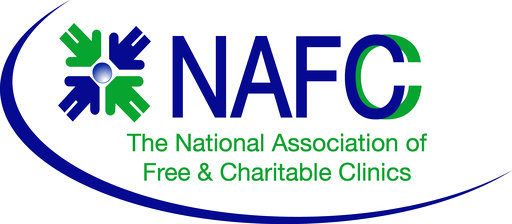Grace’s Community Nutritionist, Ann-Marie Cools, bakes some healthy snacks for patients.
Grace Medical Home has launched an innovative four-year program that addresses the intersection of food insecurity and chronic disease through Culinary Medicine, thanks to a $400,000 grant from the Florida Blue Foundation.
The "Planting Seeds of Health" program represents a revolutionary shift from traditional healthcare models that often leave patients caught in cycles of medication management without addressing underlying nutritional deficiencies and food access barriers.
With 53% of Grace Medical Home patients reporting difficulty accessing nutritious food, the program tackles a harsh reality facing many families: choosing between paying for medications and buying groceries. Food insecurity affects more than half of the clinic's patients as grocery prices continue to soar while wages remain stagnant.
Culinary Medicine, an evidence-based field that empowers individuals to make dietary choices to manage and prevent chronic disease, forms the foundation of the program. Rather than simply prescribing medications for diet-related chronic conditions like diabetes, hypertension, and heart disease, the approach recognizes that true healing starts in the kitchen.
"This will have a direct and lasting impact on the lives of our patients who are struggling with food insecurity," said Ann-Marie Cools, Grace's Community Nutritionist. "This funding means more than just numbers on paper — it means full cupboards, healthy meals, and a little less worry for families who have been going without."
The comprehensive program provides patients with food prescriptions tailored to their specific health conditions, free healthy groceries to stock their pantries, hands-on cooking classes in Grace's teaching kitchen, and nutrition education that empowers families to make lasting changes.
Grace has partnered with the UCF College of Medicine to ensure the program delivers cutting-edge care while training the next generation of physicians to understand the critical connection between food security and health outcomes. Dr. Kirsten Carter, Grace's Medical Director, and Dr. Sherry Wasserstrom, UCF lifestyle medicine faculty physician, will lead the collaborative effort.
Medical students, gap year interns—college graduates gaining healthcare experience while applying to medical school—and volunteers will work directly with patients, ensuring personalized attention and culturally relevant nutrition solutions that fit real family budgets and cooking skills.
"The collaboration builds on more than a decade of partnership with UCF's KNIGHTS Clinic, which has provided primary and specialty care to uninsured residents since 2013," stated Grace's CEO, Stephanie Garris. "By expanding this relationship to include Culinary Medicine training, we will not only transform Grace's care model but also shape the way future physicians practice medicine."
The program launches as part of Grace's commitment to addressing healthcare's social determinants, recognizing that zip codes and pantry contents often predict health outcomes more accurately than genetic codes.
For families managing chronic conditions on tight budgets, Planting Seeds of Health offers hope: the possibility of reducing medication dependence through improved nutrition, gaining cooking skills that stretch food dollars further, and accessing free healthy groceries that transform family mealtimes.
Grace will track and monitor patient health outcomes, food security improvements, and student and intern learning outcomes to measure the program's comprehensive impact over the four-year initiative.
The program is part of $3 million in grants awarded by the Florida Blue Foundation to support eight community-based food programs across Florida aimed at strengthening food security and combating chronic conditions.



































